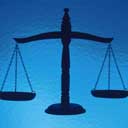Leonard Deutchman

March 15, 2010 | Legaltech News
Court Finds Special Meaning in 'Loss' Under CFAAAttorney Leonard Deutchman looks at litigation regarding the alleged theft of confidential information from the Mintel Interntational Group and finds that "loss" under the Computer Fraud and Abuse Act does not include the costs to assess whether a computer was "damaged" under the act.
By Leonard Deutchman
10 minute read

November 09, 2010 | The Legal Intelligencer
Is E-Discovery Practice the New Fourth Amendment?Of course, almost every action the prosecution takes in the courtroom has direct or indirect constitutional implications, but for me the most interesting intersection between the Constitution, litigation and daily life was search and seizure. Everything the police did had constitutional implications, and was reviewed over and again, like an "instant" replay with an infinite number of cameras and endless television timeouts while the ref made his or her decision.
By Leonard Deutchman
13 minute read

April 14, 2009 | Law.com
The 'Next Big Thing' in E-Discovery?Early case assessment, a process through which reviewers try to define the universe of potentially responsive electronically stored information as quickly and cheaply as possible, is either the "next big thing" or the "present big thing" in e-discovery, says attorney Leonard Deutchman.
By Leonard Deutchman
13 minute read

March 09, 2010 | The Legal Intelligencer
Not With a Bang, But a WhimperIn Mintel International Group v. Neergheen, Civ. 08-c3939 (N.D.Ill. January 12, 2010) ("Mintel V"), the trial court issued what should be the final opinion in this ongoing litigation involving a departing, high-level employee.
By Leonard Deutchman
10 minute read
March 16, 2009 | The Legal Intelligencer
Not Just Another Third PartyIn last week's column, I reviewed Mintel International Group Ltd. v. Neergheen, No. 08-CV-3939 (N.D. Ill. Feb. 3, 2009), where Magistrate Judge Maria Valdez rejected a plaintiff's efforts to secure a court order that would allow it to search the computers
By Leonard Deutchman
10 minute read

March 08, 2011 | The Legal Intelligencer
Asking the Wrong Questions?In the recent 3rd U.S. Circuit Court of Appeals decision United States v. Stabile, the court upheld a defendant's convictions for receipt and possession of child pornography and bank fraud by applying the "plain view" doctrine of, or exception to, the Fourth Amendment.
By Leonard Deutchman
14 minute read

September 10, 2008 | Legaltech News
Putting E-Discovery to the Test, AgainAn important lesson to be drawn from Victor Stanley is that the producing party failed because it gave no justification for its search methodology. Counsel using a search strategy verified by testing will produce defensible results that will stand up to challenge.
By Leonard Deutchman
11 minute read

September 16, 2010 | Law.com
E-Discovery Sanctions: Not for Defendants OnlyAccording to Leonard Deutchman, Pension Committee and Medcorp are two extreme examples of a phenomenon that e-discovery observers will acknowledge if pressed to be honest and candid: The plaintiffs bar knows far, far less about e-discovery than does the defense bar.
By Leonard Deutchman
13 minute read

April 12, 2007 | Law.com
Disclosure: How Safe Are EDD Safeguards?Examining the amendments to the Federal Rules of Civil Procedure for electronic data discovery, Leonard Deutchman analyzes how effectively the new revisions guard against inadvertent disclosure of privileged materials, and how well they define "undue burden or cost."
By Leonard Deutchman
11 minute read
August 13, 2007 | The Legal Intelligencer
RAMificationsA copyright infringement matter decided earlier this year contains object lessons not only for lawyers seeking access to electronically-stored information, but courts concerned about the preservation of evidence.
By Leonard Deutchman
8 minute read
Trending Stories
- 1The Impact of Erlinger on Predicate Felony Sentencing Statutes
- 2To Ease Partner Pay Tensions, Some Law Firms Are Seeking 'Middle Ground' in Transparency
- 3How Legal Aid and Tech Collaboration Can Bridge the Justice Gap
- 4The Rise of AI-Generated Deepfakes: A New Cybersecurity Threat for Law Firms
- 5Litigation Leaders: Labaton’s Eric Belfi on Running Case Investigation, Analysis and Evaluation In-House
More from ALM
- Legal Speak at General Counsel Conference East 2024: Match Group's Katie Dugan & Herrick's Carol Goodman 1 minute read
- Legal Speak at General Counsel Conference East 2024: Eric Wall, Executive VP, Syllo 1 minute read
- Legal Speak at General Counsel Conference East 2024: Virginia Griffith, Director of Business Development at OutsideGC 1 minute read



